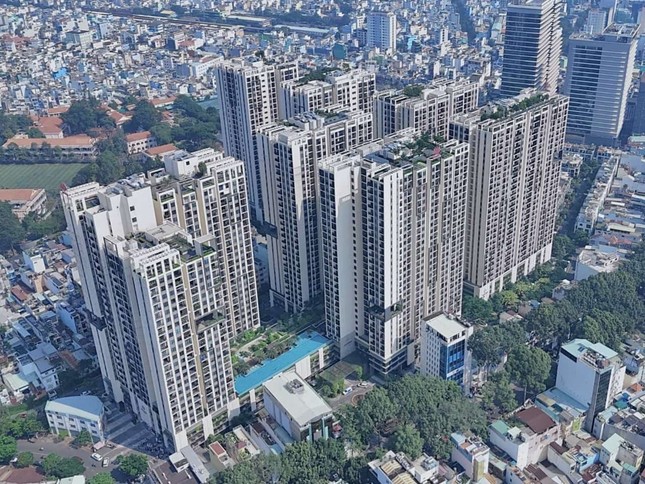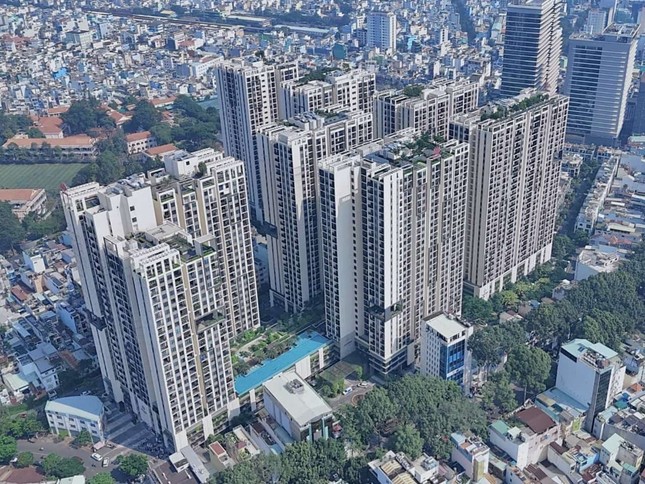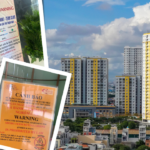The Department of Housing and Real Estate Market Management under the Ministry of Construction has recently issued Document No. 418/QLN-QLNƠ to the Department of Inspection and Handling of Administrative Violations under the Ministry of Justice regarding issues related to residential housing.
According to the summary of issues and proposed solutions provided by the Department of Inspection, the Housing Law 2023, its guiding documents, and Official Dispatch 4757 from the Ministry of Construction prohibit the use of apartments for non-residential purposes. However, the Ministry of Construction clarified that the nature of Airbnb-style accommodation services involves renting an apartment for living purposes, and there are no current regulations defining short-term rentals or prohibiting owners from renting out their apartments.
The Ministry argued that it is unreasonable to ban short-term rentals (less than 30 days) while long-term rentals are permitted. Therefore, banning Airbnb-style rentals is not legally sound. Apartment owners have the right to rent out their unoccupied units, as this is one of their property rights under the Civil Code.
While this model can cause inconvenience to other residents, instead of a ban, management solutions should be implemented. For instance, owners should be required to register their business, meet security and fire safety standards, and ensure that their activities do not negatively impact the apartment community.
As a suggested solution, relevant authorities should take a comprehensive approach and issue specific legal regulations for managing short-term accommodation services in apartment buildings.

The Ha Do Centrosa complex has many apartments rented through Airbnb.
According to the Department of Housing and Real Estate Market Management, the management of apartment buildings is currently governed by the Housing Law 2023 and its guiding documents. Regarding the proposal related to short-term stays in apartment buildings, the Department acknowledged the suggestion and will study and report it to the competent authorities for consideration of amendments or supplements in the future.
Previously, the Ho Chi Minh City Department of Construction sent a document to the City’s Tourism Department, the Ho Chi Minh City Real Estate Association (HoREA), and other relevant units to seek their opinions on the proposal for the short-term accommodation model in apartment buildings.
The Housing Law 2023 prohibits certain activities, including the unauthorized conversion of apartment building functions and the use of apartments for non-residential purposes. The Regulation on Management and Use of Apartment Buildings, issued together with Circular No. 05/2024/TT-BXD by the Ministry of Construction, stipulates that apartment buildings must be used according to their designed functions and purposes and in compliance with the approved project contents.
However, the People’s Committee of Ho Chi Minh City has recently assigned the Department of Construction to coordinate with relevant units to evaluate the actual situation of managing short-term accommodation models in apartment buildings. The aim is to find a balance between ensuring the security of residents and promoting the city’s economic and tourism development.
To make proposals and recommendations to the People’s Committee of Ho Chi Minh City for consideration and direction on economic and tourism development, the Department of Construction requested the Tourism Department, HoREA, and other relevant units to provide their opinions on the short-term accommodation model in apartment buildings in the city.
Mr. Le Hoang Chau, Chairman of HoREA, stated that short-term apartment rentals do not increase the residential density beyond the planned level and do not cause infrastructure degradation, as the average number of guests per apartment per month is only about 1.7.
Short-term apartment rentals are the legal right of apartment owners, as stipulated in the Housing Law 2023 and the Civil Code 2015. To enhance state management efficiency, HoREA proposed adding regulations on short-term apartment rentals to the Housing Law, Decree No. 95/2024/ND-CP, Circular No. 05/2024/TT-BXD, and the Model Internal Rules of Apartment Buildings. These regulations should clarify the responsibilities of landlords, their obligation to coordinate with the Management Board and local authorities, and the possibility of higher management fees compared to long-term residents. HoREA also suggested requiring landlords to register their business and fulfill their tax obligations.
Additionally, HoREA recommended that the Ministry of Construction review and report to competent authorities to amend and supplement relevant legal documents to ensure effective management and balance the interests of landlords, the resident community, and tenants.
The End of Short-Term Rental Businesses in Condos: A New Era for the Industry
“There are currently no specific legal regulations that define the exact number of days that constitute a ‘short-term rental,’ according to the Ministry of Construction. “
The City’s Aging Apartment Blocks Get a New Lease of Life: Over 500 Run-Down Residential Buildings in Ho Chi Minh City to be Revamped in the Next Decade
At a press conference on socio-economic issues held on March 6, a representative from the Ho Chi Minh City Department of Construction announced that, to address the issue of repairing and renovating old apartments in the area, authorities will enforce mandatory evictions for households who have not yet agreed to the project. These evictions are necessary to carry out the project, which aims to serve the greater good, ensure the safety of the community, and enhance the city’s urban landscape.
Unauthorized Use Results in Damages: Condominium Management Faces Criminal Charges.
The 2023 Housing Law stipulates that in the event of violations, depending on the nature and severity, condominium management board members will face administrative sanctions or even criminal liability and be required to provide compensation for any damages incurred.
Unlocking Land Access for Commercial Housing Development: Expanding Eligibility for Land Use Transfer
On the morning of November 13, Minister of Natural Resources and Environment Do Duc Duy presented to the National Assembly a proposal and a report on the pilot implementation of a resolution for commercial housing projects through agreements on the receipt of land use rights or the transfer of existing land use rights.





















